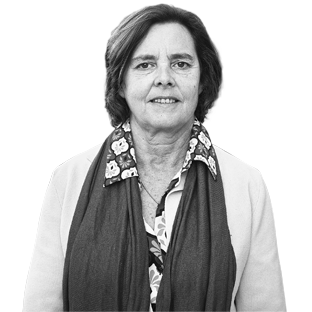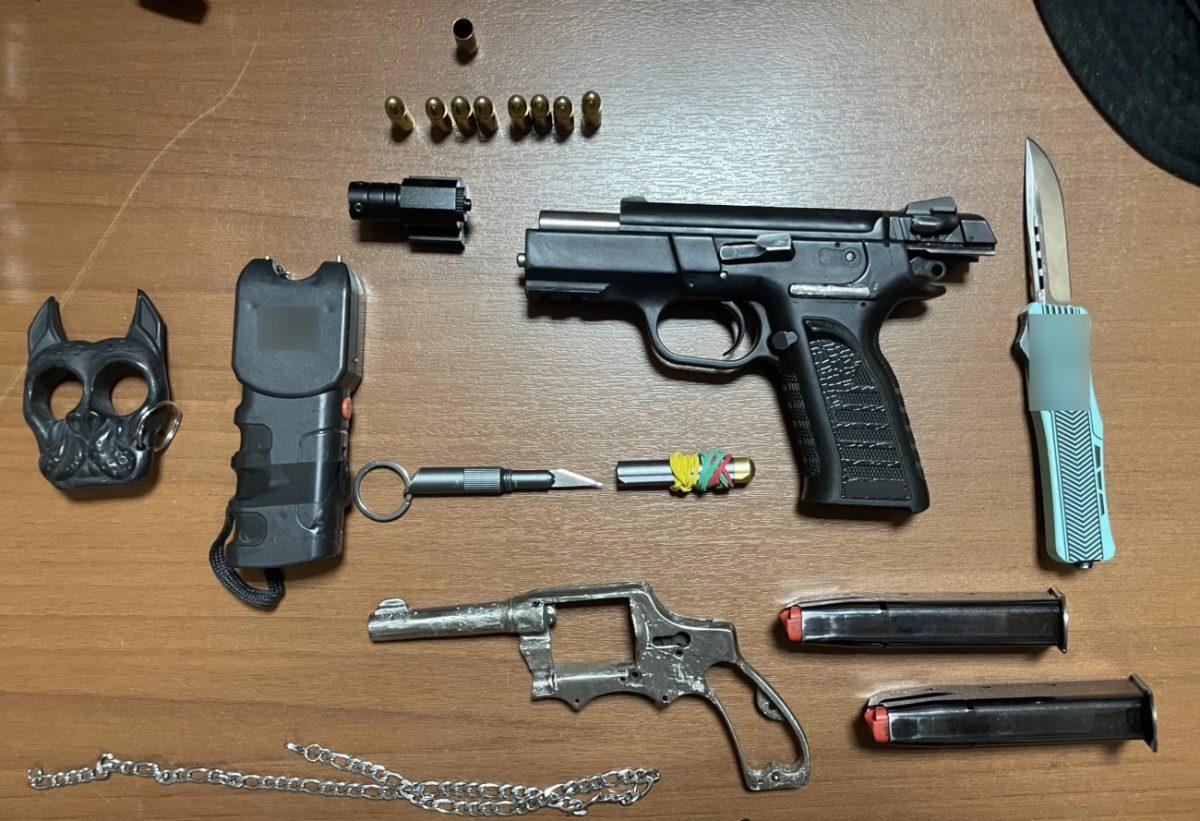The choice is between Pedro (Nuno Santos) and the Wolf

Setúbal is a city governed by CDU, but socialist air have been gaining more and more space for communists and many of the district’s municipalities are already governed by the PS. The choice of the district to spend one of the last days of the election campaign was therefore obvious at a time when the socialist caravan wants to show mobilization and support.
The first impression that comes to the door of the Livramento Market, in the city center and then at all other points of passage by Pedro Nuno Santos, is the professionalism of the socialist machine. Nothing is left at random. Prior to the arrival of the leader, André Pinotes Batista, the president of the local federation, is putting the pieces and giving instructions so that there is no improvisation. Since the position of the Socialist Youth Group that follows all actions, involving the definition of campaign messages that appear in small posters wielded by supporters, in the frame of Pedro Nuno Santos images when making statements with the press, until the definition of the course and the ideal point to speak with the media, everything is prepared long before the arrival of the leader.
Ahead and behind the caravan, there are always alert advisers to avoid flaws to the script. A careful observation allows you to realize that all the runs of the runs were made in advance to identify places where positioners in balconies and other points above the visual horizon. The goal is to cause the impression that the passage of the ruin causes reactions between the residents and thus draw the attention of the television chambers and the objectives of the photographers.
Before starting to visit the market, the communication officials lament to journalists the sample samples of the many polls that are being published. They argue that most respondents are licensed and aged between 30 and 50 years. The older and elderly electorate without academic formation is not, from his point of view, represented in the studies that have been disclosed.
This is the reason that leads socialists to insist on an end result on election day, which may once again surprise the country. The argument is repeated to satiety throughout the day, also by Pedro Nuno Santos himself.
Out of the comfort zone
It is talking about closed rooms or rallies that Pedro Nuno Santos feels more comfortable. Street contacts and fits of passage are definitely not their beach. Even so, the socialist leader follows the script and spends much of his campaign days in markets and ruined. Behind him, a militant takes a bucket of roses to the leader to offer. It is a conversation unlock, almost always very fast, unless the interlocutors are more expansive.
In the Livramento Market in Setúbal, Pedro Nuno Santos was approached by a surprise interlocutor. Joana Amaral Dias, accompanied by a small DNA entourage, like what she had already done with Luís Montenegro at Ovibeja, appeared by surprise to the socialist leader to, in front of the cameras, ask him if she had already returned the 203,000 euros that earned in the cost of the Republic Assembly. The noise of the market, accentuated at the moment for the screams of the supporters and the arrangement of the drums that accompany the entourage, drown out the annoyance and Pedro Nuno moved on. The episode, which was no longer original, was just a fait divers on the campaign day. At the exit António Mendonça Mendes, a list of list by Setúbal and her sister, the MEO Catarina Mendes still stopped to greet Amaral Dias, who spoke to journalists, but walked away quickly, not without first, with a smile to defined as the campaign’s agit proposal.
Party committed to victory
The days have been full of visits from party notable. It is a socialist tradition, showing a united party in election campaign time and this time is no different.
The strong socialist names were cast to appear and talk. The alignment of interventions is made to enhance the curriculum and merits of socialist governance and the contribution of Pedro Nuno Santos to the results achieved. This is how Inês de Medeiros thanked the socialist leader the houses that the municipality of Almada has already been able to build and the many that are still under construction. Alvaro Beleza was reserved the speech about the National Health Service « the largest work of the last fifty years », which, according to the president of Sedes only the PS can help because it is « a safe haven ».
The Spinumviva case has already had greater protagonism in the campaign of what is for these days, but it is always a theme that is hanging in the speeches. Also because it serves as a motto for the argument that these elections « we did not want, or we wanted », it is not tired of saying Pedro Nuno Santos, occur because Montenegro caused them because of a personal problem. From the day the political crisis has become inevitable that this is the greatest socialist concern: to explain to the Portuguese that the socialist party is not guilty of the crisis. The history of Portuguese democracy has already shown that the Portuguese tend to punish those who consider responsible, hence the insistence at this point.
FACT Chek and the risk of liberalism
As the campaign approaches the end, Pedro Nuno Santos, as well as Montenegro in tune the message they want to leave to the Portuguese.
In the two speeches made by the leader, the script was virtually the same, starting at the beginning: « There are five reasons for adaing the elections and the Portuguese will give the PS win again that they know is the only party that gives them security, where they can trust. » The five reasons have to be recovered by the leader several times over the long speech in which Pedro Nuno Santos does not want to leave any arguments from outside.
In addition to instability, the socialist leader accuses AD of incompetence because he has worsened the situation in the most problematic sectors such as NHS, housing and education. As those who make the FACT Chek of the 11-month governance ads, the socialist who wants to be a prime minister after the elections sink a long list of arguments to justify the thesis that Montenegro’s executive has failed the entire line.
The inability to manage crises is another failed failed, using the closing of emergency, the mismanagement of the INEM strike and even the blackout, which, in Pedro Nuno’s words, « just not worse because Ren solved the problem in a short time. »
The strongest argument is kept to the end: the danger of radicalism that can destroy the NHS and the pension system. The socialists know that the bulk of their electoral base is among the oldest, mostly renovated electorate. The probable scenario for the liberal initiative to be part of a government solution with the democratic alliance, considered likely in case of AD victory, opens the door to the speech of fear. «IL brings the accelerator, as Cotrim says. Accelerate what? ”, Asks, » they can’t even go. » In socialist discourse, there is a government of AD with IL, the privatization of pensions will be inevitable. Pedro Nuno knows that the reconciliation of the PSD with the retired is not yet a completed process and bets on all of these votes, which for the socialists can make a difference between a defeat and a victory.
António Costa’s legacy is back
If a year ago, the constant references to António Costa’s governance caused discomfort to their successor in the PS leadership. Now these times seem to be completely forgotten.
The use of the good governance of the eight years of Costa is a constant to justify such a thesis of the « safe haven » which is the PS, as opposed to the lighthouse that Luís Montenegro complains to be. Augusto Santos Silva was the protagonist in the Setúbal rally from Praise to Costa. «We live dangerous times and uncertainty in the world. The prime minister should be in Europe, with the other leaders to face the challenges. I was next to António Costa for many years and I know how he was consulted, on a daily basis on the big questions.
The former president of the Assembly of the Republic and minister in several folders in the governments of António Costa used the senator’s statute to accuse Montenegro of « leading the country to mediocrity », destroying the legacy of the now president of the European Council. To rescue the country from a situation that causes him « perplexity and sadness », Santos Silva appeals to those present so that he does not waste votes to the left and focus the vote in the PS.
In defense of the Socialist Secretary-General, Santos Silva recalls how Pedro Nuno Santos led negotiations with left parties at the time of the Gergonça, « without deviations, nor ideological assignments, » sufficient reason for a trustworthy leader to direct the party.
In an exclusive interview with Sol, Pedro Nuno Santos makes one last appeal to voters, says that Luís Montenegro is unstable and that only the PS brings stability
Pedro Nuno Santos. ‘We have already shown that we know how to negotiate’
What is the last message you want to leave in this election campaign?
It is very important to take this opportunity to have a government that can ensure stability. The previous government, which has been in office so far, not only has not been able to ensure stability, but the source of instability was. There are problems in our country that not only have not been resolved, but have been degrading, as is the case with health or economy itself. Luís Montenegro inherits an economy to grow and leaves, in the first three months of the year, an economy to fall.
We want not only to earn elections to correct the problems that have not been solved, but to give Portugal a new direction, try to recover the economy, protect jobs, increase salaries, increase pensions, save the NHS and build houses.
According to the polls, in the best scenario, even with a PS victory, the conditions will not be very different from those we had a year ago. How does the PS guarantee stability under these conditions?
We only go to elections because of a problem that directly involves the still Prime Minister. With a PS victory we will guarantee and work with Parliament to leave the elections to have a solution of political stability in Portugal. And there is no reason why this does not happen, because all parties are also required to contribute to political stability.
Are you available to accept conditions you have imposed on the AD government this year, how to share the position of President of the Assembly of the Republic or make a budget cedences?
It makes no sense, at this time, to be making conjectures about what will happen after May 18. In these remaining days we have to do our utmost in our reach to have the best possible result and a good condition to govern. Then, with the parliament that leaves, we will soon see who you need to talk to, what conditions you need to guarantee, but for that, the socialist party has to win the elections.
Will Montenegro still have problems from the Spinumviva case?
For now, there is a lot that is not yet and has not been clarified, so doubts will be maintained. We have new news every week. The country cannot be permanently in this environment of instability that falls from the outset about the Prime Minister himself. He is convinced that we will only have political stability in Portugal if there is a change in government and government leader.
If the Socialist Party wins, as it expects, will you make these negotiations before meeting with President of the Republic?
We have to wait for May 18th. We have already been able to show – myself, in the past – that we can dialogue, negotiate, give in to ensure governability conditions. But it helps we have the best possible result
For the stability it promises, is it essential what will the next president of the Republic do?
The President of the Republic is always an important piece. This one no longer has much maneuver margin, so it will have to stay for the next.
It was important that May 18th was not a moment, an antechamber of some new elections. I want on May 18th to even get a stable solution for the next four years.
Is the useful vote on PS?
This is obvious. The truth is that there is only one alternative to AD, which is the Socialist Party, and the dispersal of votes does not help this change. I have appealed to a concentration of votes in the PS, notably in the electoral circles where the smallest parties cannot elect deputies, but whose votes are important, not only to elect an alternative to AD, but also to ensure, from the PS perspective, fewer deputies of arrives in Parliament.








